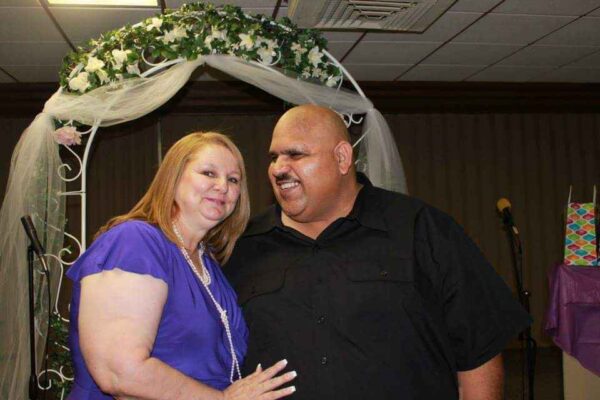Longtime New Mexico resident caught up in ICE raids targeting hundreds of Iraqis nationwide, fears persecution and torture if returned to Iraq
ALBUQUERQUE, NM—Today, a federal district court judge in Michigan will hold an emergency hearing in a class-action suit filed Saturday by the American Civil Liberties Union (ACLU) of New Mexico, the ACLU of Michigan, and the national ACLU seeking to immediately stop federal immigration officials from deporting anyone to Iraq. The suit seeks to expand U.S. District Judge Mark Goldsmiths recent 14-day stay on deportations of Detroit-area Iraqi immigrants into a nationwide stay. The ACLU of New Mexico represents Albuquerque resident Abbas Oda Manshad Al-Sokaini, who fled from Iraq and sought asylum in the United States. He has lived in New Mexico since 1996. Abbas, who is a home healthcare worker, is married to Brenda Sisneros, a U.S. Citizen, and has three stepchildren, eleven grandchildren, and five great-grandchildren, all of whom are U.S. citizens.
“Our client Abbas is a hardworking family man and a beloved, long-time member of our community,” said ACLU of New Mexico Staff Attorney Kristin Greer Love. “Tragically, this administration’s racist and xenophobic immigration policies have torn Abbas away from his family. Now he faces grave threats of violent persecution if this administration forcibly returns him to Iraq. Our hope is that the courts will recognize that Abbas and hundreds of other people like him should have an opportunity to appear before an immigration judge and demonstrate the harm that they would face in Iraq. Abbas should be here in Albuquerque with his loved ones, not in immigration detention.”
Abbas fled Iraq in the early 90s fearing torture and death at the hands of Saddam Hussein’s regime. While serving in the Iraqi military, he collaborated with American soldiers by providing information about the location of Saddam’s weapons and ammunition caches. After spending time in a refugee camp in Saudi Arabia, he sought asylum in the United States and relocated to Albuquerque, NM where he has lived for the past 21 years.
In the year 2000, he was convicted of a drug crime and was placed on supervision, but he was never sentenced to any period of incarceration. Despite the minor nature of the crime he was charged with, he has been subject to a final removal order since 2003—an order that has been unenforceable due to Iraq’s lack of a repatriation agreement with the United States. However, a recent deal struck between Iraq and the US that removes Iraq from the list of nations targeted by President Trump’s Muslim ban reversed this long-standing policy against repatriation. In recent days, ICE raids have swept up an untold number of long-time residents of the United States who face immediate deportation to Iraq, a country where many fear they will face persecution, torture, or death.
On the morning of June 20, ICE agents woke Abbas and Brenda by banging loudly on their doors and windows, and demanded to speak with Abbas. They claimed they only needed to take him in for questioning, but ICE immediately transferred Abbas to an ICE detention center in El Paso, TX, where he faces imminent removal to Iraq. Abbas fears that his past political activities in Iraq, his longtime association with the United States, and his known involvement in his wife’s Baptist church in Albuquerque all make him a special target for persecution or torture.

“Abbas is the backbone of our family,” said Brenda Sisneros, Abbas’ wife of thirteen years. “He has deep roots here in Albuquerque, and we just want him to come back home. He made a mistake many years ago, but everyone’s human. People in Iraq know he’s involved in my church, and he could face violence if they make him go back. I don’t want my family to lose him.”
The ACLU’s class action suit seeks to halt the imminent deportation of Abbas and hundreds of other Iraqi nationals, arguing that it is illegal to deport the detainees without giving them an opportunity before an immigration judge to prove that they could face torture or death if returned to Iraq.
Documents
Related Content

Federal Judge Orders Release of Detained Iraqi Nationals

ACLU Challenges Unjustified Detention of Iraqi Nationals, Including Albuquerque Resident Abbas Al-Sokaini
Stay Informed
Sign up to be the first to hear about how to take action.
By completing this form, I agree to receive occasional emails per the terms of the ACLU’s privacy statement.
By completing this form, I agree to receive occasional emails per the terms of the ACLU’s privacy statement.


